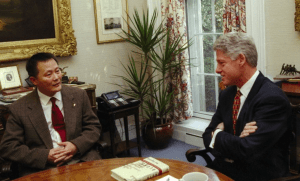Journal of Political Risk, Vol. 7, No. 6, June 2018
Demetrius Cox
Analyst and Consultant

A PLA Air Force (PLAAF) military transport plane (IL-76) in Davao City on 8 June 2018. Source: Philippine Plane Spotters Group (PPSG).
“The supreme art of war is to subdue the enemy without fighting.”
― Sun Tzu, The Art of War
On June 9, 2018 the Philippine Star published an article titled “More than 3 million Chinese allowed entry into Philippines since 2016 — Immigration data”.
In what may become one of the most remarkable subversions in recent history, the article describes how the immigration floodgates have been thrown open by Philippine President Rodrigo Duterte. With a current national population of 103 million, Duterte has allowed a 3% direct population increase (3+ million) of Chinese immigrants to the Republic of the Philippines in less than three years, which is enough to keep most demographers up at night. And there is no end in sight.




